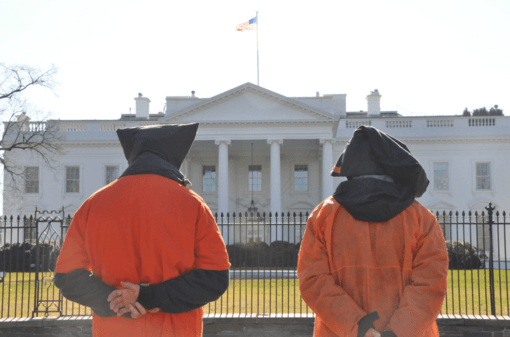
Photo by Medill DC | CC BY 2.0
I’m not surprised Gina Haspell got the appointment to head the CIA. The idea that that agency should have someone with morals that found fault with torture or covering up said torture is laughable at best. Indeed, I think her actions overseeing torture sessions and (more importantly) destroying the evidence of those sessions are why she ultimately passed muster for the appointment. She proved her soullessness and enslavement to the Empire and its deeds, no matter how reprehensible some may find them.
As a person who grew up around the military and intelligence wings of the US government, I met my share of civilian intelligence officers. Most of them I met through their children, who were my friends. Some of my friends knew who their fathers worked for (and yes back then it was only the fathers), while others swore on a stack of their souvenirs from Laos, Chile or Iran that their dad was in those countries to help out the poor people there; why else would the agency he worked for be called USAID? Over time, my awareness of the CIA and its deeds developed with my antiwar activities. The more I read left wing and underground papers, the more I understood the nature of both the agency and the system it is part of. By the time the 1973 CIA-sponsored coup against Salvador Allende in Chile took place, I was able to destroy its apologizers in a classroom debate.
My distaste for the CIA didn’t always exist. Indeed, like many other youngsters (and not so young) I was enamored with the spy myth perpetuated by James Bond, the Man from U.N.C.L.E. and so on. In the mid-1960s, when our family was stationed at a small USAF station near Peshawar in what was then West Pakistan, I knew the giant radar antennae on base were being used to spy on the Chinese and the Soviets. I also discovered that the airport a few miles from the base had been used by Gary Powers and other pilots flying U-2 surveillance planes. The thing, though, is that nobody who worked on base, especially my father, seemed like the spies in the James Bond novels I temporarily stole from my mother. There were no dashing suits, cool cars or even very many unmarried beautiful women. In fact, most of the men there were some of the least exciting people I knew.
There was one man, who I will call Mr. S., who was different than the rest. He didn’t live on the base. Instead, he lived in a fancy hotel suite in downtown Peshawar located on a broad avenue. The hotel had been part of the British colonial area during the Raj. It was, to say the least, stately. Fans hanging from the low ceilings slowly stirred the hot Pakistani air. Various employees of the hotel waited for requests or orders from residents or a supervisor. When I was with this colleague of my father’s, we would sit on the porch of the hotel watching foot, car and tonga traffic going by while we ate various snacks and drank. My drink was usually fresh mango juice. If do not know what Mr. S. drank. Usually, we were waiting for a driver to take us to one of the villages in Pakistan’s Northwest Frontier province. Other times, we would board one of the tongas and take a short ride in the horse or donkey-drawn carriage to the Catholic church or some Pakistani official’s home.
Once we had arrived at our destination, whether it was a village of huts made of mud and straw or a spacious home built in the style of the Raj, I would be introduced to the male children and sent off to play with them. Usually, we kicked a soccer ball around, played with sticks or played a makeshift game of tag. There was one village we went to a few times where the boys showed me a hole they had carved in the wall surrounding the women’s housing. We would then surreptitiously talk to the girls segregated inside. Other times we would catch toads and then release them. Meanwhile, Mr. S. would be meeting with various Pakistanis, drinking tea and talking. I never asked him what he talked about because I knew he wouldn’t tell me, plus I was just a ten-year-old kid. Looking back, one assumes he was building and maintaining local alliances in the interests of US policy. The day would almost always end with a delicious feast of roast fowl, curries, tea, various vegetables and delicious sweetcakes. Once or twice there was even roasted goat.
Hannah Arendt coined the phrase “the banality of evil” in her coverage of Nazi bureaucrat Adolf Eichmann’s war crimes trial in Jerusalem. In essence, this concept describes the nature of humanity in a society that is bureaucratized, compartmentalized, focused on efficiency and results yet also beholden to the individual prejudices and greed of those who control it. Those who operate in that society and work to maintain and expand its reach are expected to either identify with those prejudices or, at the least, submerge their morality to those of the greater society. The nature of the bureaucracy actually makes this easier, since it removes most individuals involved from direct complicity. Ms. Gaspell, then, might be the exception, given her personal involvement in the torture cell and the subsequent coverup/destruction of the evidentiary tapes. They do say, after all, that a woman in a man’s world (like the CIA) has to be twice as smart and work twice as hard just to be considered worthy of a place.